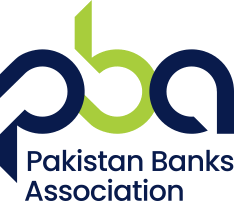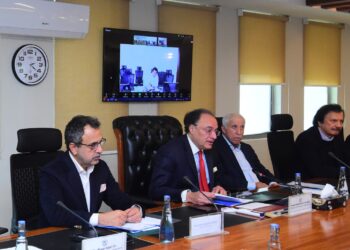ISLAMABAD: The Pakistan Banks Association (PBA) has voiced strong support for the federal budget 2025–26, hailing it as a significant step toward inclusive economic growth and long-term stability.
In an official press release, the PBA emphasized that the banking sector—an essential partner in Pakistan’s economic development—remains committed to supporting national priorities and driving structural reforms. Working in close coordination with the Ministry of Finance (MoF), the State Bank of Pakistan (SBP), and other stakeholders under the leadership of the Finance Minister and the SBP Governor, the banking industry continues to contribute meaningfully to transformative policy initiatives outlined in the new budget.
Among the highlights, the PBA cited its instrumental role in finalizing the Rs 1.275 trillion Circular Debt Resolution transaction—one of the largest and most complex financing efforts in the nation’s history. Collaborating with the MoF, SBP, and Central Power Purchasing Agency (CPPA), the banking sector helped address key regulatory and structural hurdles. This cashflow-backed solution is expected to stabilize the power sector and reduce electricity costs, all with minimal added burden on consumers.
Another forward-looking initiative in the budget is the National Subsistence Farmers Support Initiative (NSFSI), which aims to empower smallholder farmers through digital, cashflow-based loans of up to PKR 1 million. Funds will be directly disbursed into digital wallets and redeemable at POS-enabled merchants for essential agricultural inputs. The initiative also includes tech-enabled agricultural advisory services and an Electronic Warehouse Receipt (eWhR) system to improve access to rural credit.
The SME sector also stands to benefit significantly. The SBP-led SME Risk Coverage Scheme, launched last year, has already disbursed over PKR 311 billion to more than 95,000 businesses. SME financing has since grown by 36% to PKR 641 billion, with a 51% increase in the number of beneficiaries. The scheme supports the government’s ambitious goal of reaching Rs 1.1 trillion in SME credit by 2028.
In the housing sector, a government-backed subsidy program is being introduced to support low- and middle-income households. In partnership with banks, the initiative will offer 20-year mortgages at subsidized rates—aiming to raise Pakistan’s mortgage-to-GDP ratio from the current 0.3% to 5% by 2030.
To promote green mobility, the government and PBA are jointly launching a targeted financing scheme for electric two- and three-wheelers. Designed to support gig workers, women, and small business owners, the program will offer subsidized, low-collateral loans—helping reduce carbon emissions and urban pollution while offering fuel cost savings.
The youth remain central to the government’s development priorities. Under the Prime Minister’s Youth Business and Agriculture Loan Scheme, PKR 200 billion has been allocated for concessional financing to MSMEs, with a strong focus on the agriculture sector. The scheme also provides green loans of up to Rs 2.5 million to solarize diesel-powered tube wells, contributing to a climate-resilient agricultural economy.
In a landmark development, the banking sector, in collaboration with the British Asian Trust (BAT), is launching Pakistan’s first-ever Pakistan Skills Impact Bond (PSIB). This innovative, outcome-based financing model shifts away from traditional input-driven approaches and ties funding to real employment results. It aims to revamp the technical and vocational education sector by attracting global outcome funders and corporate CSR contributors—marking a breakthrough in results-oriented public finance.
Zafar Masud, Chairman of the PBA, commented on the developments:
“These bold reforms and targeted interventions underscore the evolving role of the banking industry—not merely as a financial intermediary but as a strategic driver of national transformation. As a key enabler, the PBA continues to lead from the front—fostering collaboration between the public and private sectors, shaping progressive policy dialogue, and championing innovation that delivers real impact.”
As Pakistan charts a course toward sustainable growth and economic resilience, the banking sector reaffirms its commitment to aligning with the national development agenda and driving long-term prosperity.
— Ends —















